Vintage lamp HOe-4020-10-35
282,00€ VAT not included
SHIPPING: 10 DAYS
Vintage lamp HOe-4020-10-35
Do you want to buy a Vintage lamp? We present you the Vintage lamp HOe-4020-10-35 that remains faithful to the design of the years 50, these retro lamps They were very typical of the retro American bars and restaurants also known as American diners. We could also find them in other businesses such as a Barber Shop (Barber classic Retro Vintage). This Retro lamp of high quality, is manufactured with Blown Opalina glass*.
These retro lamps has different metal finishes to choose between gloss nickel finish, matte nickel or brass. The choice of metal for finishing does not change in the final price, being the same for any election.
In combination Vintage lamp HOe-4020-10-35 we recommend you Vintage ceiling lamp Oe-4020 / 10 which combines perfectly with the glass model.
Dimensions Vintage Lamp HOe-4020-10-35:
- Total length from 63 cm
- Height lamp 28 cm
- 18,5 cm diameter lamp
All Vintage lamps y Retro lamps You can choose different finishes in gloss nickel, matte nickel or brass.
Rod length modifications (total dimensions):
Lengthen up to 150 cm: 50 € + VAT
Extend between 150 and 200 cm: € 65 + VAT
Extend more than 200 cm: Consult
Shorten triple rod: 25 € + VAT
Opalina Crystal
El Opalina Crystal o Glass opaline (milk glass) Is an opalescent glass, ie, semi-translucent.
Although the best known is the milky white color (which gives it its name "opal" there are also in different colors, for design reasons our lamps are made in the original Opaline glass White, which is achieved by adding an opacifier such as tin dioxide.
El Opalina Crystal It can be blown or pressed, in the case of our Vintage lamps it is Blown. It was first manufactured in Murano in 1405 and popularized in Venice in the XNUMXth century.
Decorative glassware, lamps, vases, and fancy jewelry are manufactured with this glass. It was very popular during the time fin de siècle at the end of the XNUMXth century.
Some pieces made for people of great economic level during the Gilded Age They are known for their delicacy and beauty of color and design, while depression glass pieces from the 1930s and 1940s are less appreciated.
| Weight : | 50 kg |
|---|---|
| Dimensions | 27,5x27,5x107 cm |
| finishing lamps | Brass, Nickel Gloss, Matte Nickel |
Only registered users who have purchased this product may make a review.


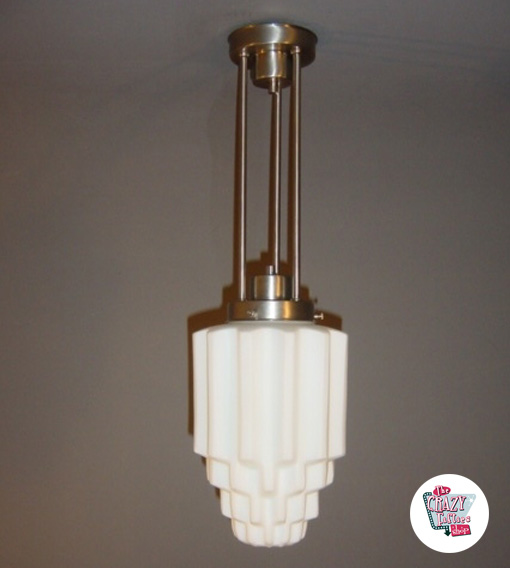
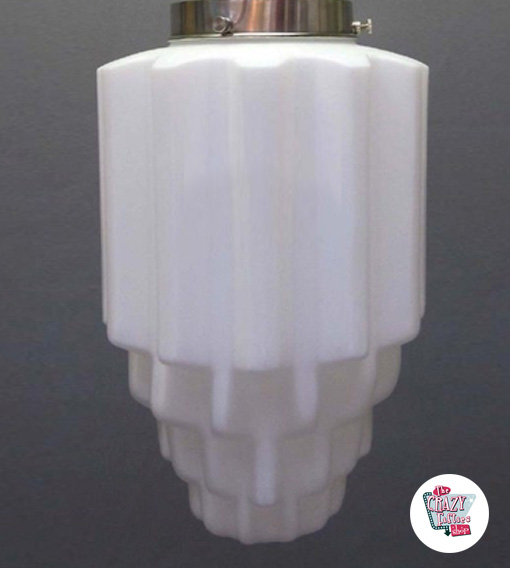
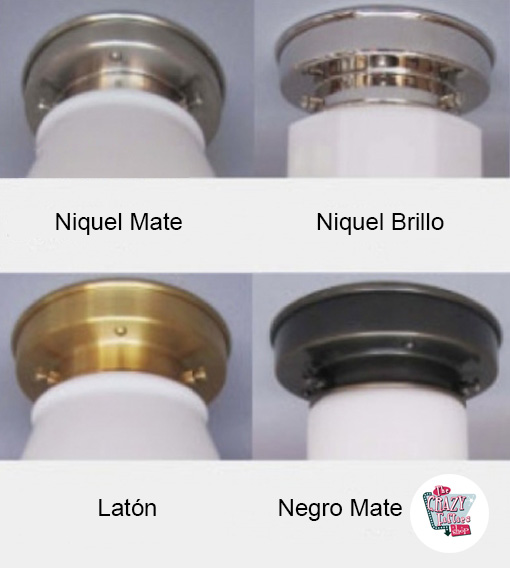
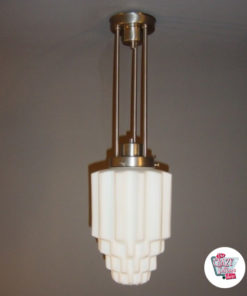
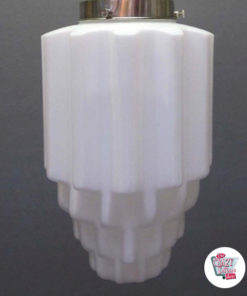
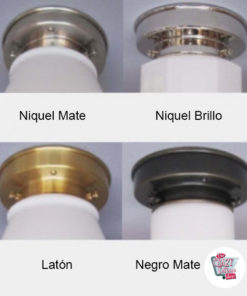
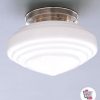
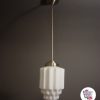
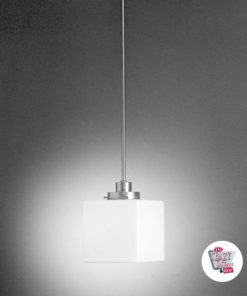
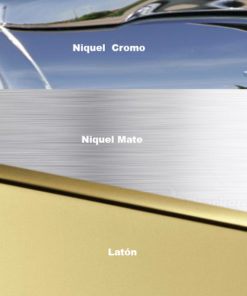
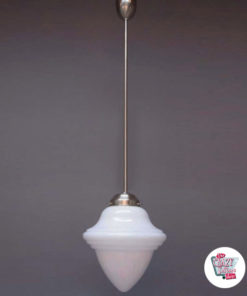
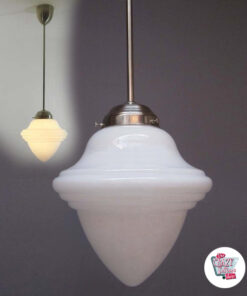
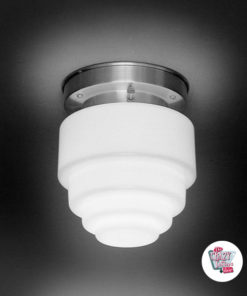
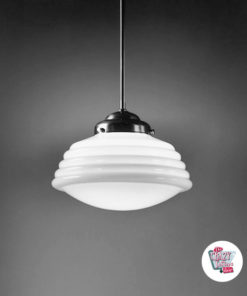
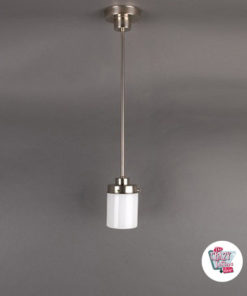
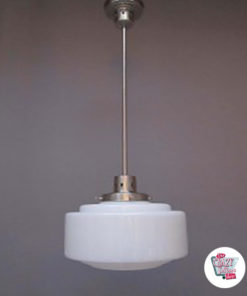
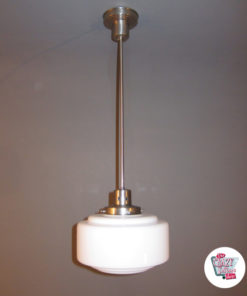
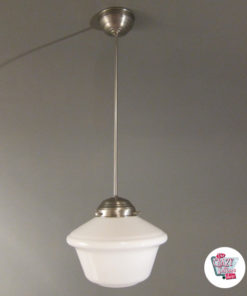
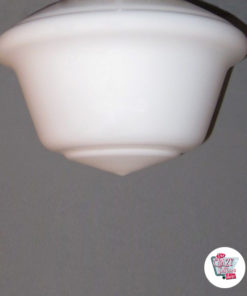
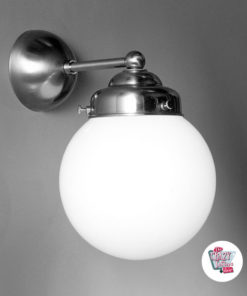
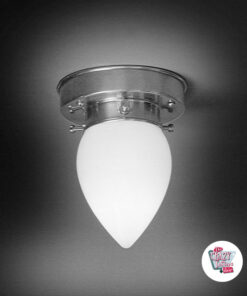
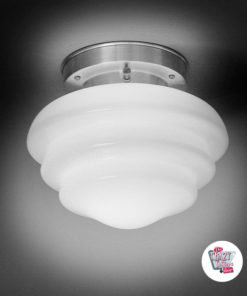
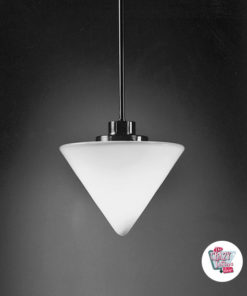
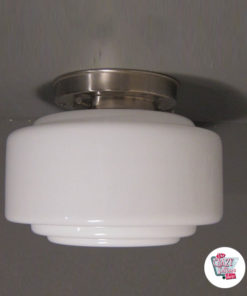
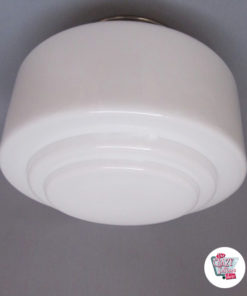
Ratings
Not yet reviewed